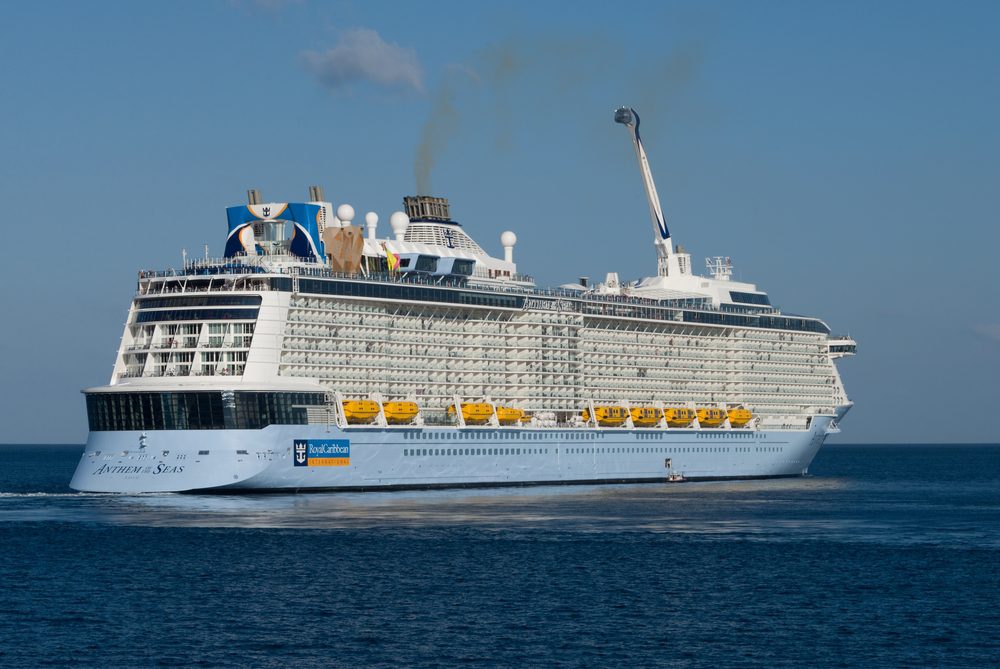/ Shutterstock.com
 By Jonathan Stempel
By Jonathan Stempel
Feb 25 (Reuters) – Royal Caribbean Cruises Ltd faces at least two lawsuits by passengers accusing the company of negligently endangering their lives by letting its Anthem of the Seas cruise ship sail into a fierce Atlantic storm this month.
The lawsuits filed in the U.S. District Court in Miami claim that Royal Caribbean knew, or should have known, that a coastal storm carrying hurricane-force winds had been forecast before the ship set sail from Cape Liberty, New Jersey on Feb. 6 for a scheduled seven-night cruise to the Bahamas.
Nonetheless, Royal Caribbean chose to sail the ship into the storm, motivated by a desire to profit at the expense of the safety of roughly 4,500 passengers and 1,600 crew, the lawsuits said.
Cynthia Martinez, a Royal Caribbean spokeswoman, said the Miami-based company does not discuss pending litigation, and has taken steps to minimize the risk of another similar incident.
Royal Caribbean has said the storm was more severe than expected.
Passengers hunkered in their rooms as the Anthem of the Seas encountered high winds and 30-foot waves off the North Carolina coast, a day after its departure.
Royal Caribbean later turned the ship around, and it returned to New Jersey on Feb. 10. The company offered passengers full refunds, and discounts on a future cruise.
Both lawsuits seek class-action status for passengers, and unspecified compensatory and punitive damages.
The first lawsuit was filed on Feb. 18 by Bruce Simpson, a Delaware resident who claimed to suffer a concussion and other injuries after being thrown 18 feet into a door when the ship pitched violently.
The second lawsuit was filed on Thursday by Frank DeLuca, of Cinnaminson, New Jersey, who suffered back injuries during the voyage, and whose wife has suffered from panic attacks and sleeplessness, their lawyer Michael Winkleman said.
“Royal Caribbean showed an absolute lack of respect for the lives of its passengers,” Winkleman said in a phone interview. A refund and a future cruise credit is insulting for what the passengers went through.”
Simpson’s lawyer was not immediately available for comment.
The cases are Simpson v. Royal Caribbean Cruises Ltd, U.S. District Court, Southern District of Florida, No. 16-20595; and DeLuca v. Royal Caribbean Cruises Ltd in the same court, No. 16-20689. (Reporting by Jonathan Stempel in New York; Editing by Alan Crosby)
(c) Copyright Thomson Reuters 2016.

 Join The Club
Join The Club











